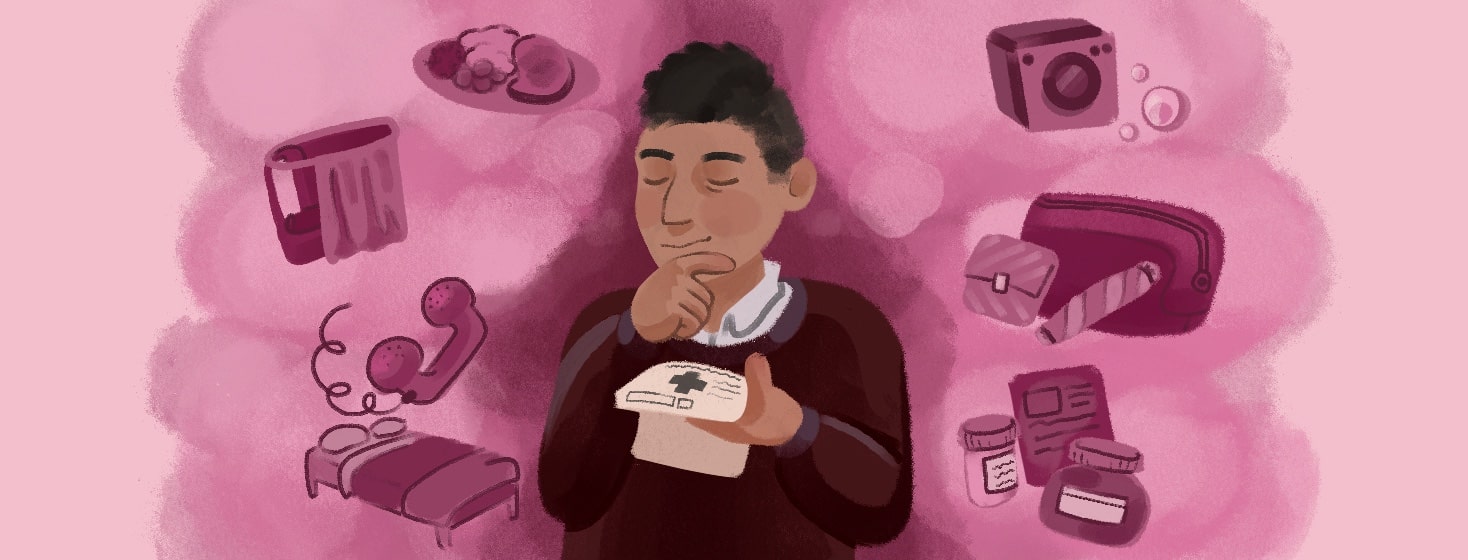Hospitalization Series: Pre-Admission Routine
Getting ready to be admitted to the hospital for a cystic fibrosis (CF) tune-up often made me anxious. I knew the coming weeks would be physically and mentally hard. One of the things that helped me prepare for admission was making a routine.
Creating a routine helped me get ready for the hospital. That routine started as soon as I got off the phone with my CF clinic. And it gave me a sense of control. My pre-admission routine helped me process the emotions I felt knowing I was about to be admitted to the hospital.
Benefits of a routine
I made my routine to help me get ready for the hospital. But it also helped me know what to expect next. For example, I knew the first step to take when I got off of the phone with my CF clinic. Also, I felt like I had a little bit of control over the situation.
Practicing my pre-admission routine allowed me to take care of myself. Routines are often associated with work or school schedules. But they can have a positive impact on your life no matter the situation. Creating routine can help alleviate anxiety, promote healthy habits, and combat burnout.1
I experienced a lot of anxiety and burnout when I was being hospitalized every couple of months. What is burn out? Burnout is often related with work related stress. But it can be applied to many settings. For example, burnout can happen with prolonged and excessive stress. And living with CF can cause long and extra amounts of stress, which can cause patients can get burnt out.2
Pre-admission routine
Making my pre-admission routine was kind-of an accident. I made it when I was very sick and was hospitalized every couple of months. The pre-admission routine was made to help me get ready for an admission.
My routine catered to my wants and needs. Your wants and needs may look different. Therefore, your routine will look different. I am going to share my routine with you today. And I hope it helps you create a routine that works for you.
- Laundry. Packing can be stressful before you're admitted to the hospital. I would make sure everything I wanted to take was clean before I began packing.
- Toiletries. Getting your period in the hospital adds to your stress. I would make sure I had my preferred tampons and pads available. Also, I would pack double what I needed in case my period came twice during my hospitalization. Hospitalizations are stressful and stress can affect your period.3
- Refill Medications. Running low on medication when you get home from the hospital is frustrating. I would call in my available refills and my family would pick them up. When I got home from the hospital my medicine was waiting for me.
- Wash my bed linen. Having clean sheets when I got home from the hospital was something I always looked forward to. I would wash and fold them before I left. When I knew what day I was going home, I'd call my family and ask if they could make my bed for me. It made the transition from hospital room to bedroom easier.
- Communicate. I would send out a mass text to my family and closest friends when I knew I was going to the hospital. And I would write an email to coworkers informing them of my hospitalization when I worked. This kept people in the know and helped foster communication.
- Hygiene. I would always take a hot, relaxing shower the night before I was admitted to the hospital because showering with my mediport access was stressful for me. My mom or sister would wash and comb my hair. And then I would trim my nails and moisturize my skin.
- Delicious Meal. This was a family event! My family and I would gather around the dining table and eat whatever sounded good to me. Think birthday meal without the cake or candles. Doing this made sure I was able to see everyone and give hugs before I left for the hospital the next morning.
In control
I noticed early on that this routine helped me feel like I was in control of something during a stressful time. Your routine will probably look very different compared to mine. But that is okay. Figure out things that will help you, write them down, talk with family about it, and implement what you can.
Having this routine was a privilege. For example, not everyone has access to laundry facilities or the finances to buy extra toiletries. Everyone's routine will look different for many reasons. It will look different based on your wants, needs, and resources.
The goal is not to compare, but to help you manage anxiety. Take note if creating this routine increases your anxiety. There are many ways to help you deal with anxiety and routine is only one of them.

Join the conversation